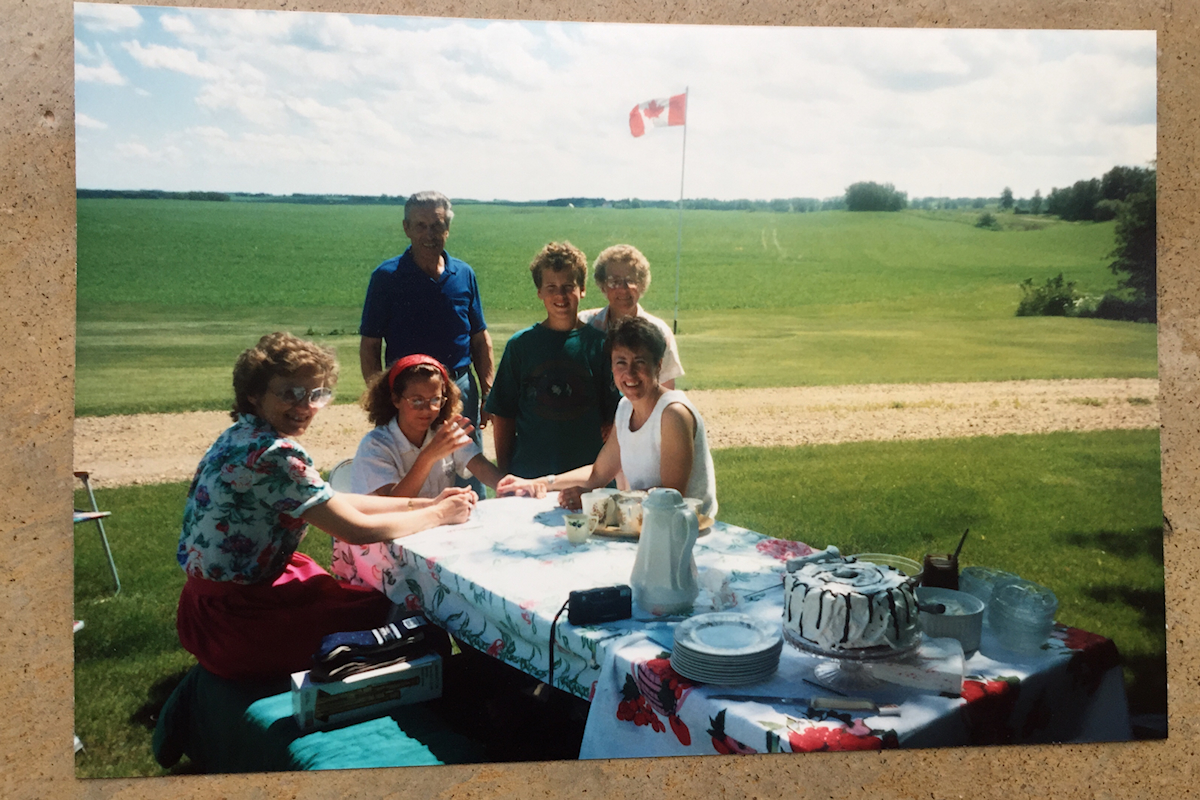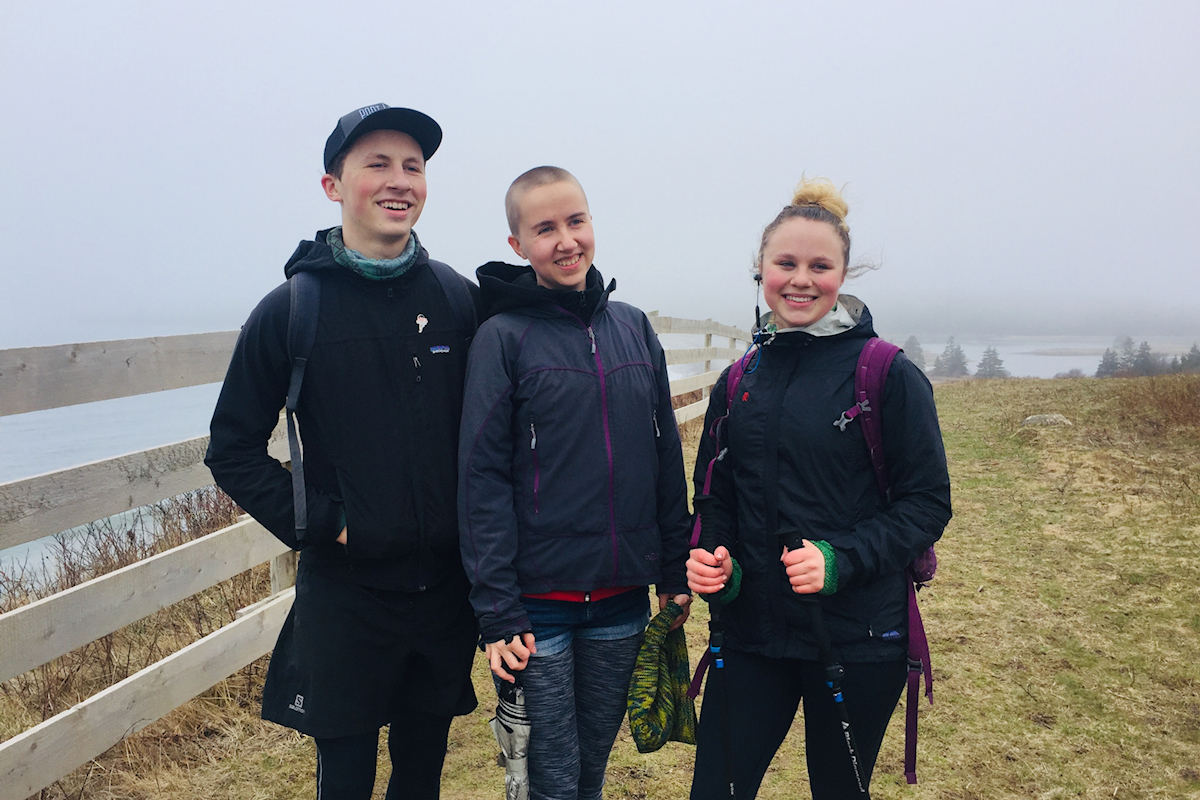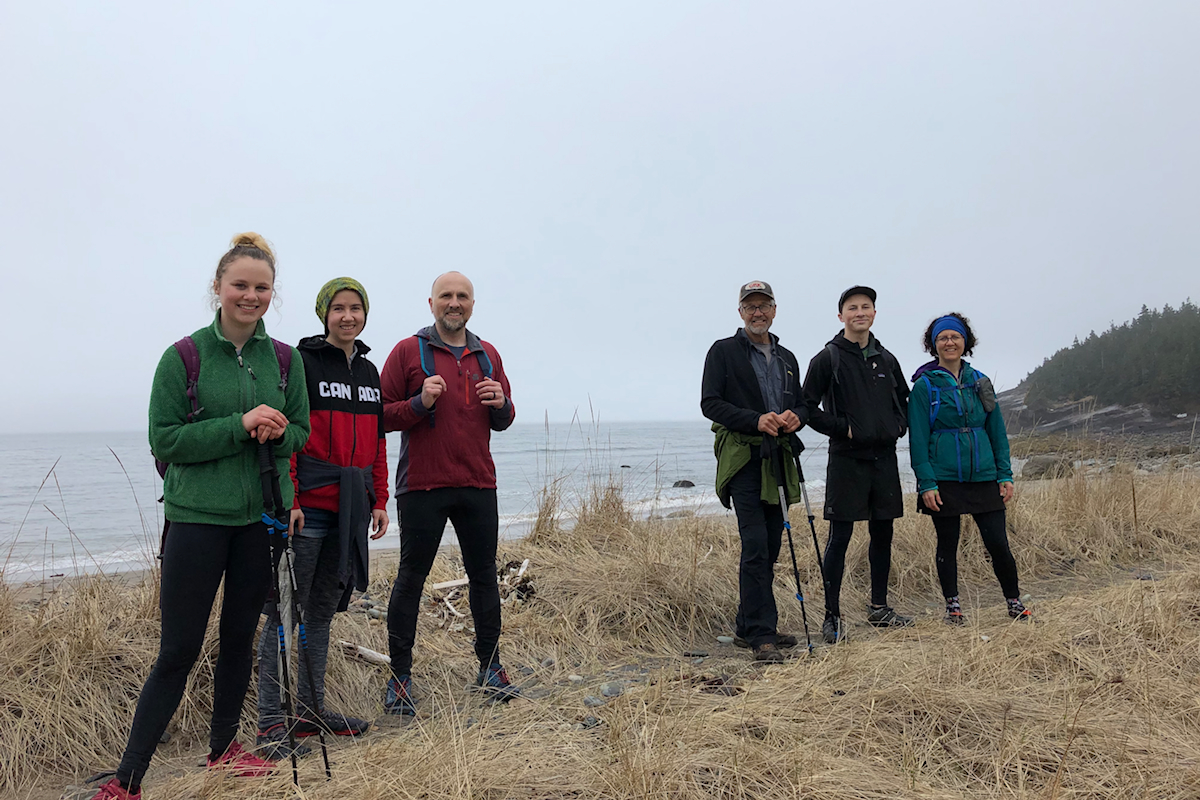Get posts by email
Beyond margins
April 29, 2019
This is the third post in a five post series entitled Faith at the Margins.
Since my adulthood I don't have a strong sense of "home" as a place. Home is my family - my parents, my husband and my kids. Home is relationships, it's not a geographical region, though I'm still holding out hope that someday I'll feel deeply and truly "home" in a physical location. I'm envious of that sense others seem to have of home on a land or in a region. A particular house in a particular place.

at my grandparent's farm
part of my "home" in childhood
Belonging is a central theme in my writing and in my adult spiritual experience and expression in part because I haven't felt like I've fully "belonged" since leaving childhood, that womb of extended family, church, and school on the Canadian prairies where I grew up.
In that secure bubble I didn't stop to consider that my own belonging, that deep sense of security I felt, grew from the seed of displacing another culture. A people that could truly claim the land as home, as it had been for thousands of years. The Indigenious peoples, the original inhabitants of that land we claimed as ours, were relegated to the margins of our white society.
This was not my parent's fault or my community's fault. We didn't "do" the displacing, but it was part of the DNA of the place, creating a systemic racism and discrimination in the broader cultural context.
I didn't really stop to face this truth until my thirties when I had been removed from my childhood long enough to look critically at its subtext. And in looking I could only peek for short periods of time before feeling overwhelmed by shame and incapacitated by systemic injustice.
It's taken me a couple decades of maturing, it's taken the visceral experience of insecurity and fear of being "the other", and it's taken the deconstruction of a "who's in and who's out" faith to remember and reconnect with the innocent compassion I felt as a child for the underdog, the marginalized, the displaced.
To be clear and to be fair to myself, it's not like I've lived with my head in the sand entirely. I'm not oblivious to the way of the world. But in a world with so much injustice, for many years I did not want to know about things I couldn't do anything about, which is actually a lot of things.

one of the "home" places in my life: Nova Scotia
I did what I could and what I felt called to do. I created the kind of world I want to live in, for my children, in our home and in small-scale community involvements. I want the world to be kind and compassionate. I want people to be loved for who they are, where their worth is not dependent on their "production value" (grades or salary) but on inherent dignity, which is afforded to all creation.
My attempts at creating this world are not perfect or even near perfect. But I did what I could, where I felt I actually had power to affect change, in my home.
There is nothing remarkable about this, most parents want to do the same. To create a safe home for their children. But I was able to protect my children's childhood in part because of the privilege afforded me by my skin color, place of birth, religion, sexual identity, and socio-economic status.
None of us want to be on the margins. And we certainly don't want our children there. We want to be smack dab in the center of privilege and security. We want that for ourselves. We want that for our children. I cannot fault this impulse or instinct. That's our tribal and evolutionary heritage. But the reality is that many humans, our brothers and sisters, are not afforded this opportunity.
My capacity for becoming more aware of the margin is increasing. Maybe it's because my children are almost grown up, and that first calling of mine, to nurture and protect them, is coming to an end. All that energy and heart needs to go somewhere. Maybe it's just the reality of midlife, gaining enough experience, and choosing the courage, to see things for how they really are.

Some expressions of Christianity have set-up margins along lines of belief. Do you believe what I believe? Can you give cognitive assent? If not, you're on the margin.
What if the margin was one of experience? Have you experienced Love incarnate in your life? Food, water, shelter, restoration, forgiveness, healing, friendship, and acceptance. The Bible calls this the Kingdom of God. And for me, as a Christian, the model of these actions is Jesus. The idea of being a Christian is to have a whole bunch of people acting like Jesus in the world. Loving at the margins of experience, improving people's lives wherever possible with action and acceptance.
What is the experience of your fellow human? Where are people suffering, broken, abused, misrepresented, and underrepresented? Who is in the minority here? Who's being discriminated against? That's the margin where we need to go.
And yes we need to change people's core beliefs. We need to believe we are accepted, believe we are valued, believe we are beloved, believe we are equals. And we start to believe that when we've lived it.
The story of Jesus is a person who gives up his rights for others. He goes to the margin and says you belong, you're valued, you're accepted, you're loved. You are my equal, my brother, my sister. And this is the kicker: I will give of myself for your well-being. Now go do the same for others. The Great Commission. Imagine if we keep extending the boundaries like this. There will actually be no margin. Everyone's "in". Everyone belongs.
Next post: Solidarity at the margins
Filed Under
Part of Series
You can subscribe to comments on this article using this form.
If you have already commented on this article, you do not need to do this, as you were automatically subscribed.





